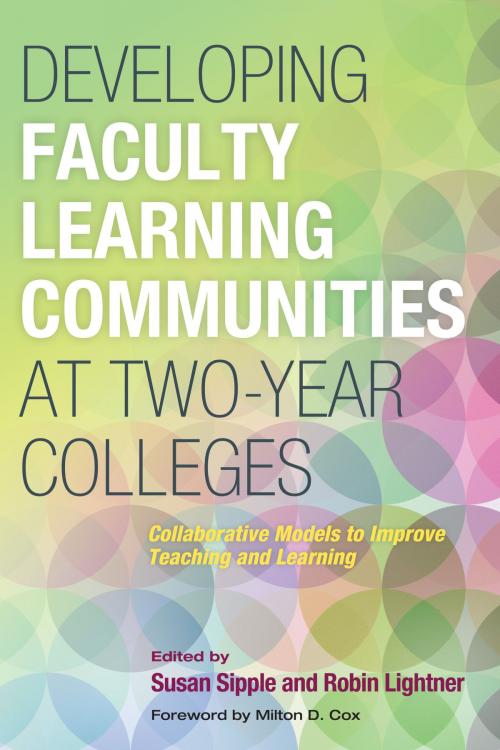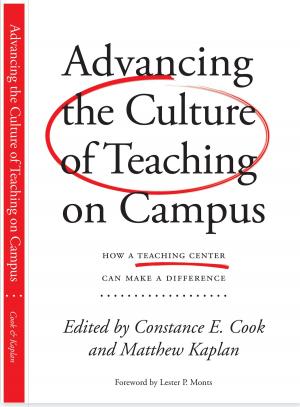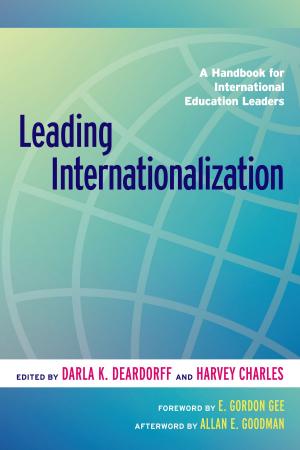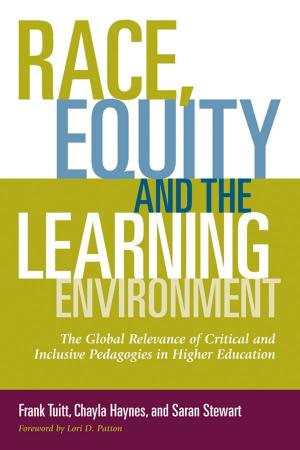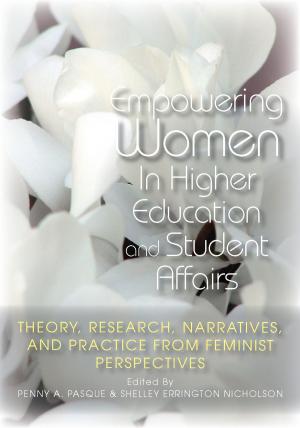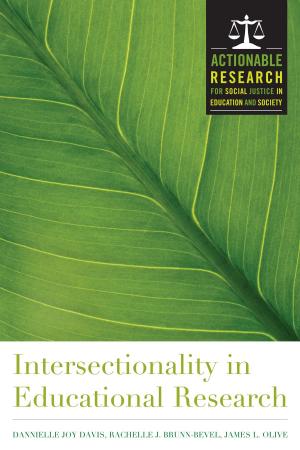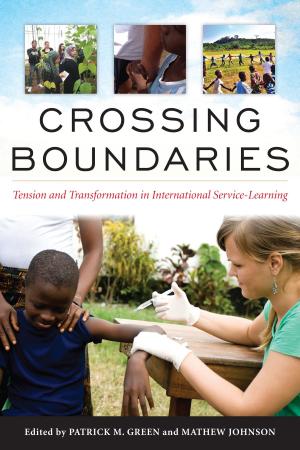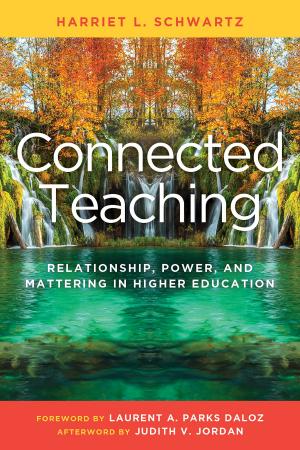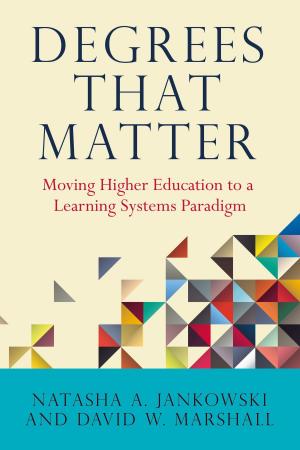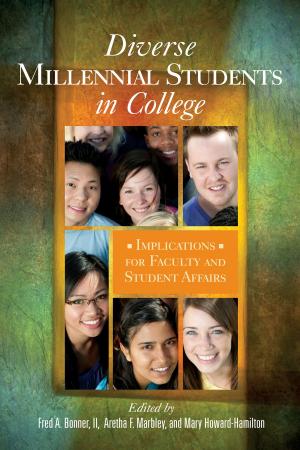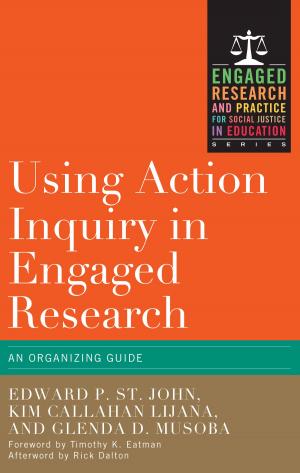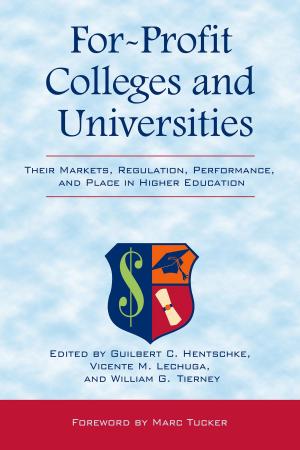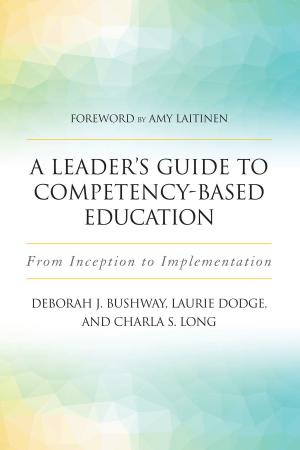Developing Faculty Learning Communities at Two-Year Colleges
Collaborative Models to Improve Teaching and Learning
Nonfiction, Reference & Language, Education & Teaching, Higher Education| Author: | ISBN: | 9781579228477 | |
| Publisher: | Stylus Publishing | Publication: | October 1, 2013 |
| Imprint: | Stylus Publishing | Language: | English |
| Author: | |
| ISBN: | 9781579228477 |
| Publisher: | Stylus Publishing |
| Publication: | October 1, 2013 |
| Imprint: | Stylus Publishing |
| Language: | English |
“This really wonderful book is a must for faculty members and faculty developers, whether they work through formal learning communities or not. Practical, detailed case histories, generously amplified with references to relevant research and best practice, show how faculty, working together, can use simple types of classroom inquiry to analyze and improve learning in their community college classrooms.”?Barbara E. Walvoord, Interim Director, Center for Excellence in Teaching, Simmons College, and Professor Emerita, University of Notre Dame
“The value of the type of faculty learning communities exemplified in this book is amply supported by a formidable body of research. Faculty and faculty developers will learn much of value from this book”?Joseph B. Cuseo, Professor emeritus of psychology; educational consultant, AVID for Higher Education
This book introduces community college faculty and faculty developers to the use of faculty learning communities (FLCs) as a means for faculty themselves to investigate and surmount student learning problems they encounter in their classrooms, and as an effective and low-cost strategy for faculty developers working with few resources to stimulate innovative teaching that leads to student persistence and improved learning outcomes.
Each chapter describes the formation of its FLC, the processes it engaged in, what worked and did not, and the outcomes achieved.
“The value of the type of faculty learning communities exemplified in this book is amply supported by a formidable body of research. Faculty and faculty developers will learn much of value from this book”?Joseph B. Cuseo, Professor emeritus of psychology; educational consultant, AVID for Higher Education
This book introduces community college faculty and faculty developers to the use of faculty learning communities (FLCs) as a means for faculty themselves to investigate and surmount student learning problems they encounter in their classrooms, and as an effective and low-cost strategy for faculty developers working with few resources to stimulate innovative teaching that leads to student persistence and improved learning outcomes.
Each chapter describes the formation of its FLC, the processes it engaged in, what worked and did not, and the outcomes achieved.
“This really wonderful book is a must for faculty members and faculty developers, whether they work through formal learning communities or not. Practical, detailed case histories, generously amplified with references to relevant research and best practice, show how faculty, working together, can use simple types of classroom inquiry to analyze and improve learning in their community college classrooms.”?Barbara E. Walvoord, Interim Director, Center for Excellence in Teaching, Simmons College, and Professor Emerita, University of Notre Dame
“The value of the type of faculty learning communities exemplified in this book is amply supported by a formidable body of research. Faculty and faculty developers will learn much of value from this book”?Joseph B. Cuseo, Professor emeritus of psychology; educational consultant, AVID for Higher Education
This book introduces community college faculty and faculty developers to the use of faculty learning communities (FLCs) as a means for faculty themselves to investigate and surmount student learning problems they encounter in their classrooms, and as an effective and low-cost strategy for faculty developers working with few resources to stimulate innovative teaching that leads to student persistence and improved learning outcomes.
Each chapter describes the formation of its FLC, the processes it engaged in, what worked and did not, and the outcomes achieved.
“The value of the type of faculty learning communities exemplified in this book is amply supported by a formidable body of research. Faculty and faculty developers will learn much of value from this book”?Joseph B. Cuseo, Professor emeritus of psychology; educational consultant, AVID for Higher Education
This book introduces community college faculty and faculty developers to the use of faculty learning communities (FLCs) as a means for faculty themselves to investigate and surmount student learning problems they encounter in their classrooms, and as an effective and low-cost strategy for faculty developers working with few resources to stimulate innovative teaching that leads to student persistence and improved learning outcomes.
Each chapter describes the formation of its FLC, the processes it engaged in, what worked and did not, and the outcomes achieved.
